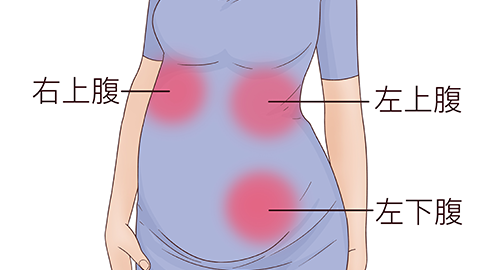Which medications can alleviate decreased fetal movement?
Generally, the main causes of decreased fetal movement include increased gestational age, insufficient maternal physical activity, fetal hypoxia in the uterus, pregnancy-induced hypertension, placental insufficiency, and others. Pregnant women should seek medical guidance for appropriate management. Treatment options may include medications such as low molecular weight heparin sodium injection, magnesium sulfate injection, compound amino acid injection, etc. Detailed explanations are as follows:
1. Increased Gestational Age
In late pregnancy, the fetus grows and develops toward maturity, resulting in reduced space for movement within the uterus and decreased fetal movement frequency, which is a normal physiological phenomenon. Pregnant women should count fetal movements at the same time daily and record the number. Medication is unnecessary. Immediate medical attention is required if significant abnormalities in fetal movement occur.
2. Insufficient Maternal Physical Activity
Long-term bed rest or prolonged sitting in pregnant women can slow down systemic blood circulation, thereby relatively decreasing placental blood supply and indirectly affecting fetal activity. Appropriate mild physical activities like walking or prenatal yoga should be adopted to promote blood circulation. No medications are needed; improving maternal circulation helps provide sufficient oxygen to the fetus and alleviates decreased fetal movement.

3. Fetal Hypoxia in Utero
Fetal hypoxia caused by factors such as nuchal cord or placental abruption may initially cause increased fetal movements followed by a decrease. Immediate medical attention is required, and oxygen therapy can be used to improve fetal oxygen supply. Under medical guidance, drugs such as low molecular weight heparin sodium injection, compound amino acid injection, and vitamin C injection may be used. In severe cases, cesarean section may be necessary to terminate the pregnancy.
4. Pregnancy-Induced Hypertension
Elevated maternal blood pressure leads to systemic small vessel spasms, reduced placental blood flow, inadequate fetal blood supply, and decreased fetal movement. Blood pressure should be strictly controlled with a low-salt diet. Under medical guidance, medications such as labetalol tablets, nifedipine controlled-release tablets, and magnesium sulfate injection may be taken to improve maternal blood pressure status, increase placental blood supply, and alleviate decreased fetal movement.
5. Placental Insufficiency
Placental aging or injury leading to functional decline prevents sufficient nutrients and oxygen supply to the fetus, causing decreased fetal movement. Regular monitoring of placental function is necessary. Under medical guidance, drugs such as compound amino acid injection and glucose injection may be used. If placental function is severely diminished, timely cesarean section is required.
In daily life, pregnant women should maintain regular作息 (作息 should be translated as "routine" or "daily schedule"), avoid excessive fatigue, engage in moderate physical activity to promote blood circulation, attend regular prenatal checkups to monitor fetal growth, development, and placental function. Immediate medical attention is necessary if abnormal fetal movement occurs. Strict adherence to medical advice regarding medication or surgical options is essential to ensure maternal and fetal safety.








